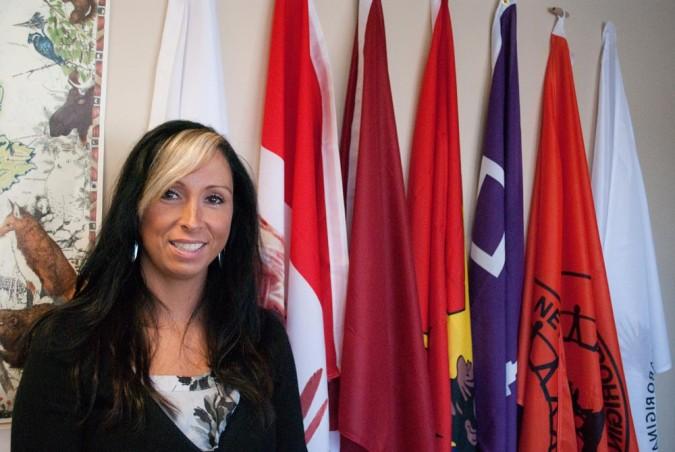By Tara Deschamp
The Centre for Indigenous Governance was launched March 2010 to support research and enhance opportunities for indigenous students and integrate indigenous culture into the Ryerson community.
Since the centre opened, it has developed key partnerships with First Nations in Ontario.
They have worked closely with the Union of Ontario Indians on First Nations education issues, participated in several First Nation education policy conferences, and cohosted and co-chaired the first ever First Nation- led Academic Think Tank on First Nation Education.
Pamela Palmater, a Mi’Kmaq lawyer and professor in the department of politics and public administration, has been the interim acting director of the Centre. Palmater, says she couldn’t refuse the offer when she discovered that the centre would be indigenous- led.
She says being Mi’kmaq is an asset to the research the centre does.
“The fact that I’m Mi’kmaq and come from similar culture and histories as other Indigenous Nations helps me direct my research in a way that will contribute to the work First Nations are doing,” says Palmater.
She attributes her approach to teaching and the Centre’s work to her culture.
“As an indigenous person, I come at teaching, research and partnerships from a decolonization framework where the focus is on indigenous legal traditions, laws, customs, histories, knowledges and perspectives,” she says.
Although the centre only has two staff members, Palmater says students are becoming involved in the centre’s work and some of the First Nations proposals she makes to the federal government.
“I have research assistants working on key research to help me with public presentations, information sessions for First Nations communities, and even for my submissions for parliament on legislation impacting First Nations,” she says.
As part of her research, Palmater and the Centre have hosted a lecture series on minority rights and indigenous identity, and an ethics speaking series a with former Prime Minister Paul Martin and members of the First Nations community.
They’ve also launched a partnership between Ryerson and the First Nations Technical Institute which allows First Nations students to earn certificates, advanced certificates and bachelor degrees.
Since the program’s inception, over 178 First Nations students from over 30 communities have taken courses in subjects like financial management, public administration and policy analysis.
According to Palmater, partnerships like these are beneficial for all students because they help to demystify stereotypes about indigenous people and distinguish between fact and myth.
“The main aim [of the centre’s work] is to develop partnerships with First Nations to work on areas related to governance, to conduct research on indigenous laws, policies, governance and specialty issues like citizenship, and to develop curriculum related to indigenous studies,” she says.
In the coming months, the centre will hold a lecture series about indigenous women in leadership positions.
It will also be hosting a conference in the fall regarding the United Nations and relations to indigenous rights.













grsag
Wow, very offensive to “integrate” Indigenous people considering history (which journalism often ignores). Kudos the ethnic cleansing